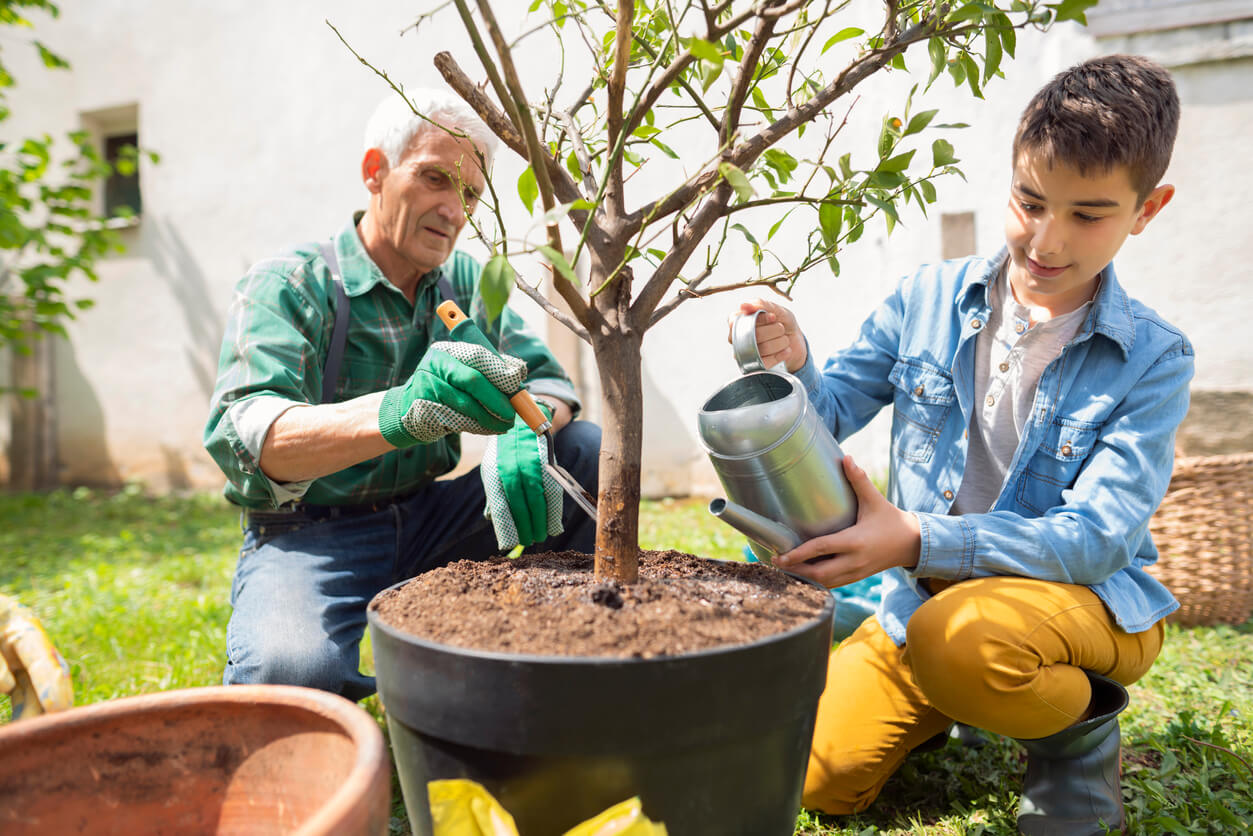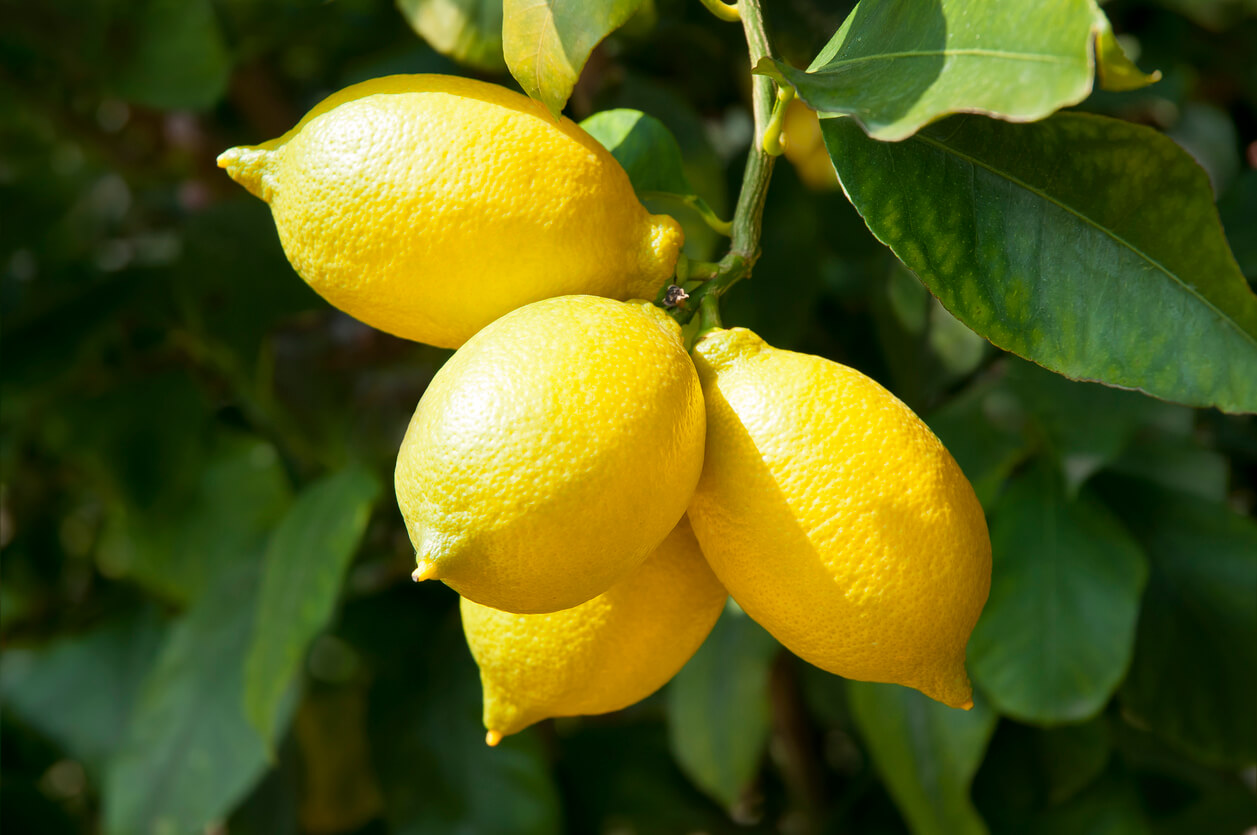Lemon trees are a popular choice for both indoor and outdoor gardens. They are relatively easy to care for, and they produce an abundance of delicious fruit. But did you know that lemon trees have different sunlight and soil requirements when they are grown indoors as opposed to outdoors?
A rule of thumb is that if you live in zones 8 to 11, you can keep your lemon tree outside, and if you live anywhere else, they will need to spend winters indoors. But no matter where you grow them, two basic rules apply: Lemons love sunshine and well-draining soil.
Keep reading to learn all about the different sunlight and soil requirements of lemon trees.

Sun and Soil Requirements for Lemon Trees Grown Indoors
When lemon trees are grown indoors, they need a bright spot that gets at least six hours of direct sunlight each day. If possible, place the tree near a south- or west-facing window. If your indoor space doesn’t get enough natural light, you can supplement with grow lights.
As far as soil goes, lemon trees need well-draining, slightly acidic soil with a pH between 5.5 and 6.5. You can either purchase a citrus potting mix specifically designed for citrus trees, or you can make your own. Citrus potting mixes include 5 parts fine bark, 1 part perlite, and 1 part potting soil. Be sure to repot the tree every two or three years to ensure that it has fresh, nutrient-rich soil.
Some gardeners prefer to use soil from their garden, but that can introduce any number of pathogens to your young tree.
In containers, water your tree when the top 2 to 3 inches of the soil become dry; you want to keep the root ball from drying out. This is especially important when you’re tending trees growing in containers—it’s not like they can stretch their roots out in search of more water.
Keep it in a sunny, south-facing room away from outdoor drafts, and your lemon tree will be happy and productive for years!

Sun and Soil Requirements for Lemon Trees Grown Outdoors
The keys to having happy lemon trees outside are sunlight, well-drained soil, and warm temperatures. If you can provide those three things, you can grow lemons just about anywhere outdoors.
When lemon trees are grown outdoors, they need full sun—that is, at least eight hours of direct sunlight each day. If possible, place the tree in an area that gets morning sun and afternoon shade. This will give them plenty of sunlight but still protect the tree from the harsh late-day sun and prevent the leaves from scorching.
Outdoor lemon trees also need well-draining, slightly acidic soil with a pH between 5.5 and 6.5. The best way to perfect this is to plant the tree in raised beds filled with citrus potting mix. However, they can be planted just fine in the ground too as long as you don’t have clay soil. The best fertilizers for outdoor citrus trees will be anything that delivers high amounts of nitrogen, like blood meal or composted chicken manure. Both are great organic nitrogen sources.
Since lemon trees love nitrogen, consider also planting peas or alfalfa near your lemon trees. After you harvest your legumes, cut the plants back so they can release their nitrogen back into the soil.
For watering, once your lemon trees are settled in—whether it’s in a container, a raised bed, or open ground—consistency is key. Lemon trees like a long drink of water once in a while. How long a while is depends on your environment and your soil. Lemon trees like soil that’s moist, but not soggy. Lemon trees don’t appreciate “wet feet”!
For trees in the ground, a long deep watering is the way to go. To ensure that the tree roots get the thorough watering they need, create a watering basin around the drip line of the tree—that’s the perimeter of the canopy where rain would drip off the leaves. Expand your watering basin as the drip line expands.
Another tip is that it’s best to water in the morning, so your tree can soak up that deep drink of water and put it to work growing lemons. Of course, if you fall behind in your watering and notice your tree is in serious need of a deep drink, don’t wait until morning. Go get the hose.
As you can see, lemon trees have different requirements when they are grown indoors as opposed to outdoors. But don’t let that scare you off—lemon trees are relatively easy to care for as long as you give them the right amount of sunlight and the right type of soil. With just a little bit of effort, you can enjoy delicious homegrown lemons for years to come!
If you have thriving lemon trees, share your secrets in the comments below!


 Previous
Previous

